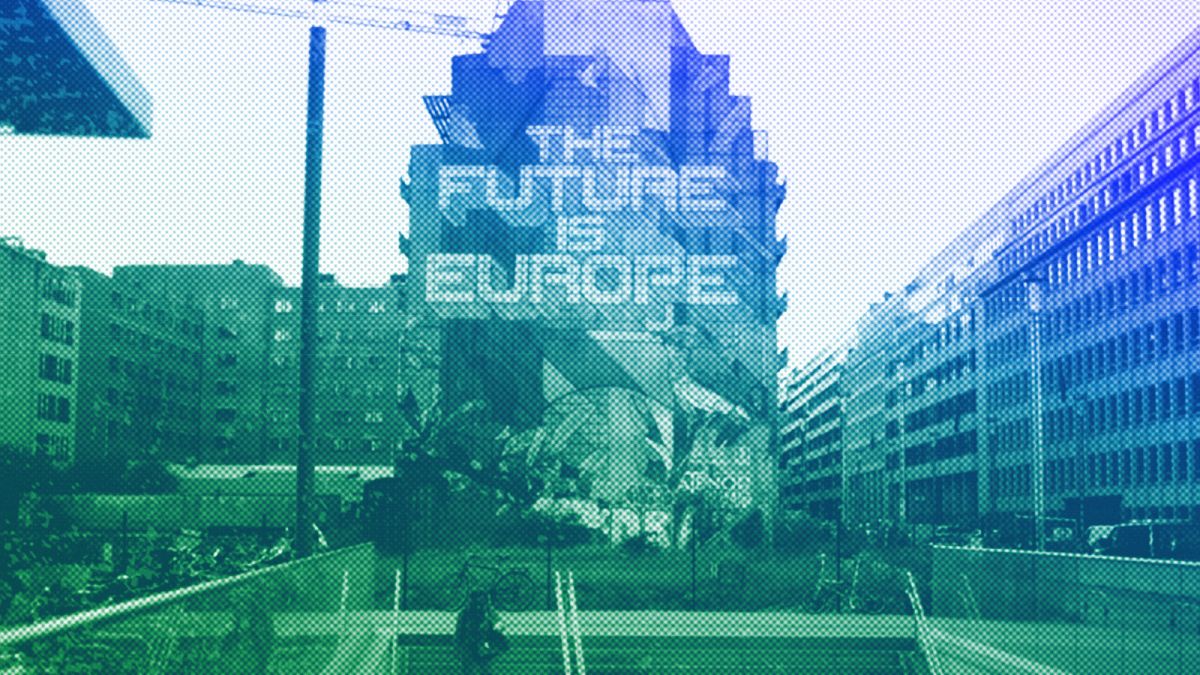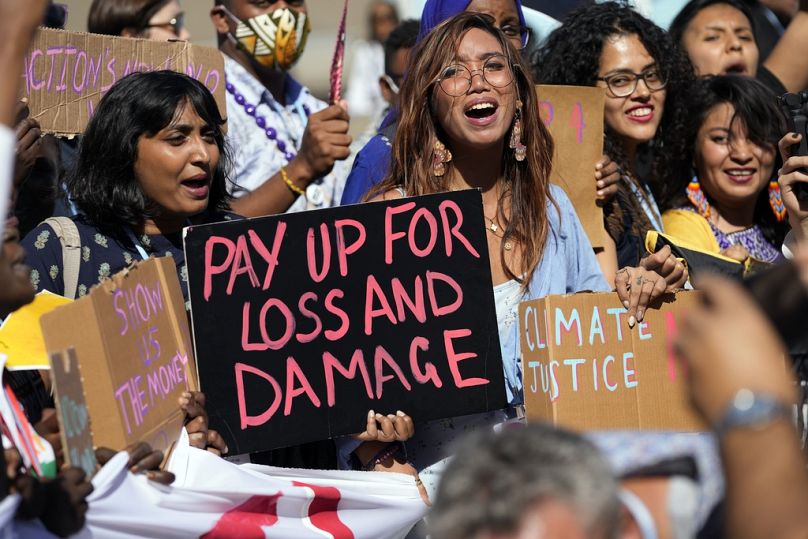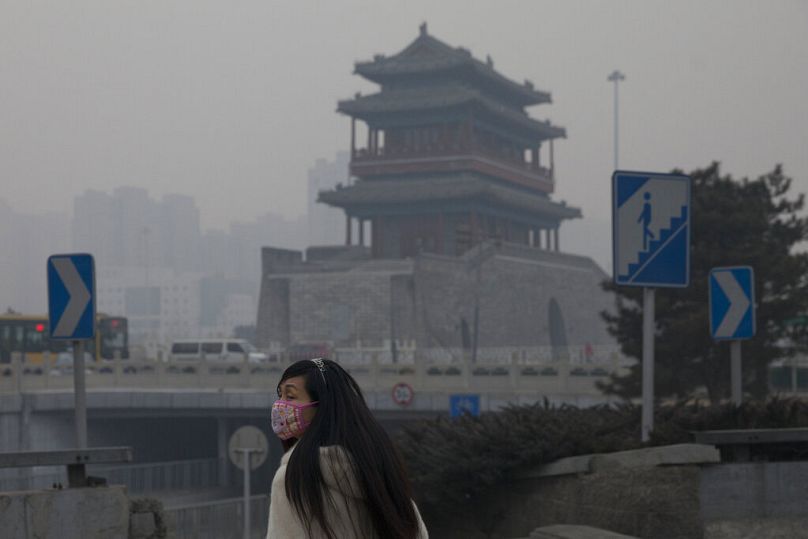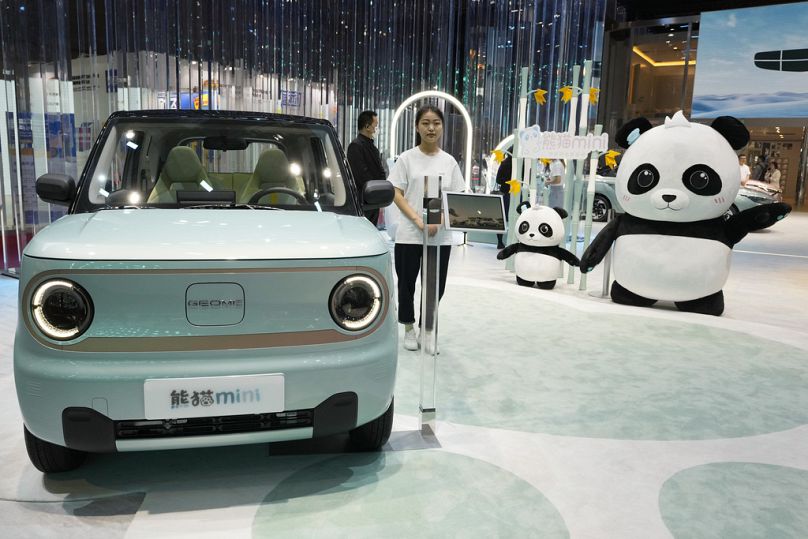The challenge for European leaders in 2024 is to build a stronger political narrative about why leaning into green transition is not only the right thing to do but the economically sound choice in the long run as well, Susi Dennison writes.
The 28th annual climate conference, COP28, is kicking off this week in Dubai, and the hosts in the United Arab Emirates have a daunting task ahead of them, as there are at least two major rows already brewing.
Dubai will be the setting for the first Global Stocktake (GST) of progress against the Paris Agreement. The conclusion that progress to date is insufficient is inescapable – greenhouse gas emissions need to be cut by 43% by 2030 compared to 2019 levels to limit temperature rises to 1.5 degrees.
But the challenge for the chairs — and for pro-climate powers — will be to avoid a backwards-looking blame game between developed and developing nations, and instead have a forward-looking discussion about the next steps in order to keep the Paris goals alive.
Lucky if everyone remains at the table
The second big division point is around the model of the Loss and Damage Fund which was agreed in principle at COP27 to compensate vulnerable countries who have to adapt to the realities of climate change.
After a year of negotiations through a Transitional Committee on the issue, a compromise text will be submitted to COP28.
But many issues remain unresolved with a clear divide between the would-be creditor and debtor nations in this fund. These include disagreements about the scope, types and eligibility of financing and who should contribute to the fund.
On the latter, the US in particular has concerns about language on the G7 nations being urged to contribute without China and the Gulf states being asked to.
Place this friction against the backdrop of the long-standing tensions between powers of the global south and the US and Europe regarding the impact that the West’s sanctions against Russia for its ongoing assault on Ukraine.
Then add to this the huge threat of wider instability in the region and beyond in light of Israel’s war with Hamas, and one could conclude that just holding a global conference without some parties walking away from the table would be a major success.
Going faster on decarbonisation is a tough sell
But the indications are that Europe and the US are not prepared to settle for just ‘’getting through’’ COP28 and are pushing for some major steps forward on the next steps of the energy transition.
Last week, news emerged that France, with strong backing from the US, will put forward a proposal to ban private financing for new coal-powered plants, through OECD standards – which could then be monitored by national regulators and NGOs.
New data from a global public opinion poll commissioned by ECFR this autumn shows why this will be a difficult discussion.
In China — one of the more reluctant major powers in committing to phasing out fossil fuels — citizens are much more relaxed about ongoing and even increasing investment in fossil fuels, compared to Europe and the US who will be pushing this proposal.
While all public opinion data from China has to be looked at keeping in mind the pressure that they might feel to be answering questions a certain way, the answers are nevertheless revealing.
This reality really gets to the crux of the two-fold challenge in front of European policymakers when they head to COP28.
Firstly, it is very hard to keep justifying going further and faster on decarbonisation to the European public when other significant players such as China — the world’s largest polluter, currently responsible for around 27% of global emissions — are dragging their feet.
And while China’s leaders feel limited pressure internally to go faster on the green transition, it will be hard for other powers to persuade them to do so.
Who will become the world leader in renewables?
But secondly, while European citizens remain deeply concerned about climate change, they are also deeply concerned about the costs of climate action, in a time of major preoccupation with the rising cost of living.
And compared to citizens elsewhere in the world they are less confident that their countries are placing themselves well to benefit from the opportunities in the green transition.
While 18% of European citizens on average are expecting Europe to become a world leader in electric vehicle production in the next ten years, 46% think it will be China instead.
On the other hand, In China, 80% of citizens expect it to be a world leader and their assessments of other powers on this front do not get above 10%.
It is a similar story when asked about whether their country will become a world leader in renewable energy in the next ten years: while 62% of Chinese respondents think their country will, though for the EU respondents, Europe was the largest answer, this was much more tentative than the Chinese response at just 34%.
A stronger political narrative is needed
Europe has much to gain from continuing to be a driver of the green transition globally, despite the challenging geopolitical circumstances.
Yet, to capitalise on the opportunities a clearer case will need to be made to the European public about their ability to thrive as a green competitor in the global economy.
Conversely, if it steps back from its plans under the European Green Deal at this point, it has much to lose in terms of competitiveness, especially when other parts of the world such as the US and China are moving forward more quickly.
The challenge for European leaders in 2024 is to build a stronger political narrative about why, in a decarbonising world, leaning into green transition is not only the right thing to do but the economically sound choice in the long run as well.
If it cannot do so, and if, following the US presidential elections in 2024, the outlook for COP29 risks being less about keeping the Paris agreement alive, and more about what can be salvaged from the remains.
Susi Dennison is the director of the European Power programme at the European Council on Foreign Relations (ECFR).
At Euronews, we believe all views matter. Contact us at view@euronews.com to send pitches or submissions and be part of the conversation.



